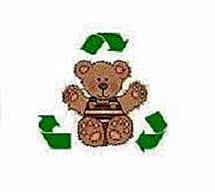
I know, the weather is finally great, we feel-smell-enjoy the beauty of the summer, and here I write about computer games... Well, this computer game seems different, with no intention to glue our kids to the screen, on the contrary, rather to motivate kids to get out and play. Maybe you can check out the MokuZoku site, with your kids on a rainy day? Just an idea, a green and a great one, I think :-)
About the game (from MokuZoku site): “MokuZoku is tackling a growing problem facing childhood development– too much time in front of computer and television screens, and not enough unstructured outdoor play. MokuZoku is revolutionizing how kids learn and play by creating an interactive world where online games motivate kids to get outside and learn about their environment. In doing so, we hope to stimulate a movement back to a simpler, healthier form of play and adventure that extends far beyond their computer. By partaking in our unique hybrid of online gaming and outdoor activity, children develop the connection with nature that is so essential to human mental and physical development.”
MokuZoku has only recently been launched, and more great things are still to be seen on their site. For the kids to be able to participate in outdoor challenges to earn "MokuBerries", an outdoor component will be added to the games, with outdoor gaming gear that provides an access code to the website. This is the main difference to other online children games: MokuZoku game gives an incentive to get out and play, by getting credit for outside activities.
About the company: MokuZoku "parents" are Joshua Baylin and Scott Pardo. The company
is forming partnerships with organizations and companies devoted to sustainability and social action, such as the Pollinator Partnership by donating 10% of its profits to the animals (and their habitats) featured in the MokuZoku games.
The company also volunteers with World Camp, a non-profit organization utilizing education as a tool to empower children in impoverished communities around the world. They traveled to Malawi, Africa to feed over 2,000 schoolchildren and to teach them about issues such as HIV/AIDS prevention, nutrition, gender equality, environmental awareness and human rights. MokuZoku also planted over 1,500 trees in Malawi, based on the points earned by kids playing the game (it added up to one tree planted for every two minutes that kids played the MokuZoku).
fredag 26 juni 2009
Play the Planet - MokuZoku
Prenumerera på:
Kommentarer till inlägget (Atom)












Inga kommentarer:
Skicka en kommentar